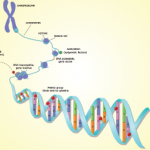“With a growing number of patients reaching the geriatric age, the ACR has had to take an increasing role in educating practitioners, says Dr. Yung.
At the ACR/ARHP Annual Meeting, these efforts include a Geriatric Rheumatology Study Group that has been active for more than five years and sessions on aging and rheumatic disease, arthritis and the older worker, modifying causal risk factors that influence the incidence of falls by older adults, and back pain in the elderly.
In addition, a representative from the National Institute on Aging has attended the annual meeting for three years to help give talks and facilitate sessions, Dr. Yung says.
ACR members have also helped to promote issues related to geriatric rheumatology at international meetings, Dr. Yung notes.
The ACR funds geriatric-related research, such as the ACR Research and Education Foundation/Association of Specialty Professors Junior Career Development Award in Geriatric Medicine, says Dr. Makris, who has received some of this funding. The funding has helped to provide $1.5 million to support early career development for those interested in aging research, Dr. Yung says. The program is now part of the National Institute on Aging’s Grants for Early Medical and Surgical Subspecialists Transition to Aging Research.
In addition, ACR leadership is working closely with leaders at the National Institute on Aging to identify additional rheumatology research opportunities, Dr. Yung says.
Continued research and physician education will help put the necessary spotlight on rheumatic conditions and the elderly, Dr. Makris says.
“The field of geriatric rheumatology needs more recognition, and having support from the ACR would be a huge step forward. I think that the ACR membership could greatly benefit from more symposia on geriatrics-related topics on management, particularly on how to manage pain in this population,” she says.

